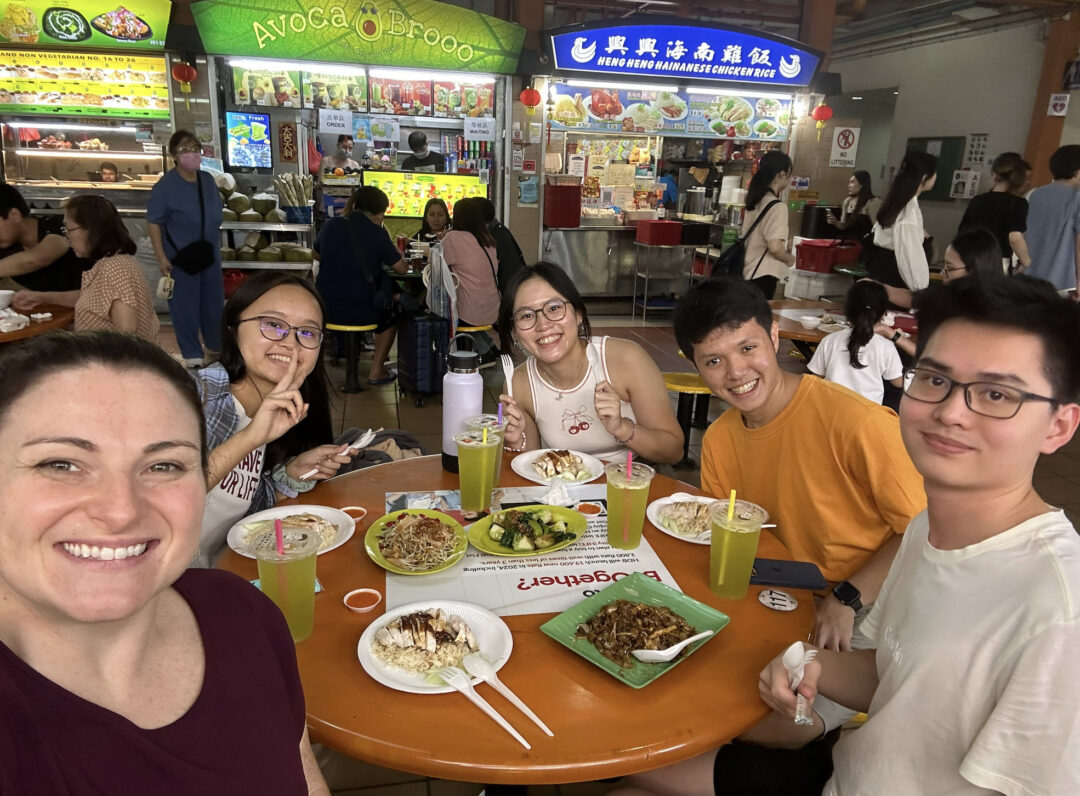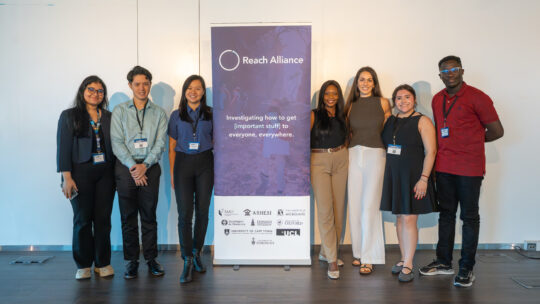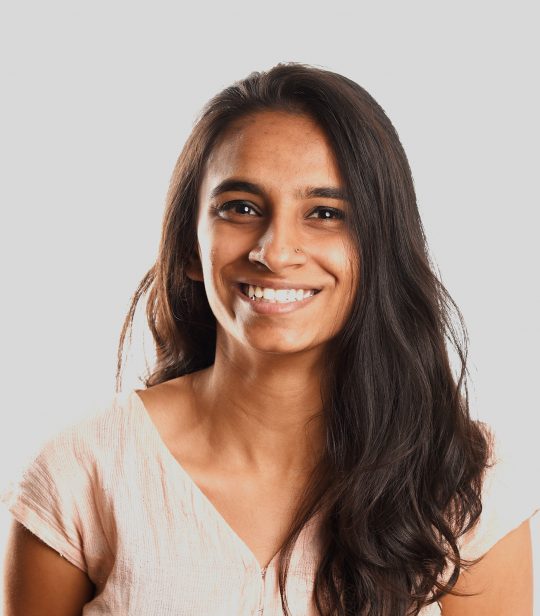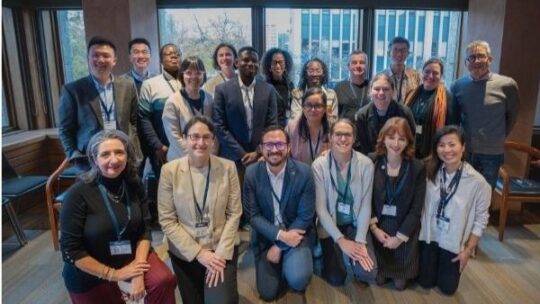Singapore’s economy relies heavily on over 400,000 migrant workers, primarily in the construction, marine shipyard, and processing sectors. Despite playing vital roles in various aspects of Singaporean society, these workers often face abuses and exploitation when it comes to their labour rights. Singapore Management University (SMU) Reach research investigates the efficacy of using digital technology to improve the welfare of migrant workers in Singapore. Specifically, the student research team developed and trialed an AI-enabled chatbot that could answer migrant workers’ common queries.
The team is still working on their case study that describes the chatbot’s development and efficacy. In the process, they’re also reflecting on youth leadership. We caught up with the team — Dexter Tan, Joanne Tan, Jay Oi, and Xinhui Chua — to talk about youth’s potential impact on research in global issues.
Xinhui, how is your team’s research project important in Singapore and for the global community?
Our research project assesses how digital technology can improve the well-being of migrant workers in Singapore. Despite current initiatives, we felt that more can be done to support this marginalized population, especially since the COVID-19 pandemic emphasized the urgent need for enhanced welfare systems for these workers.
Our research not only addresses Singapore’s immediate needs but also has the potential to provide insights into similar marginalized groups in other nations. While my team is still determining our target audience, I aspire to share our findings with NGOs serving migrant workers in Singapore and potentially worldwide. By disseminating these findings, I hope our research can foster collaboration with potential stakeholders (globally and locally), facilitating knowledge exchange and uncovering aspects that the team may not have fully explored yet.
Dexter, you recently co-authored an op-ed with two Reach alumni from the University of Toronto on investing in global leadership programs within higher education institutions. What were some key takeaways you hope readers will glean from the piece?
Last August, I was privileged to join the Reach delegation attending the 2023 AFS Youth Assembly. It brought together young leaders from various corners of the globe, all united by a shared commitment to achieving the United Nations’ Sustainable Development Goals (SDGs). This experience underscored the importance of knowledge translation and youth empowerment in global leadership roles.
Peter Zhang, Aisha Shafaqat, and I were inspired to advocate for increased opportunities that enable youth to engage meaningfully in international dialogues and initiatives. Through our op-ed, we aim to highlight the pivotal role of higher education institutions in nurturing future leaders by investing in global leadership programs. We hope to inspire organizations to recognize and support the potential of young people.
Joanne, you will be one of eight global Reach researchers heading to New York this August for the 2024 AFS Youth Assembly. What do you hope to learn from that experience?
I’m particularly looking forward to exchanging ideas, sharing experiences, and potentially collaborating on projects that could have a meaningful impact. Incorporating different perspectives into my future research and work is something I am keen to explore.
Additionally, I am enthusiastic about participating in the various workshops, seminars, and panel discussions at the AFS Youth Assembly. These sessions cover a wide array of topics that I can learn more about, including cultural exchange, leadership, and social impact. I aim to gain fresh insights, broaden my global perspective, and acquire new skills that will not only benefit my research efforts but also contribute to fostering cross-cultural understanding and collaboration.
Jay, last November, you traveled to Monterrey for the 2023 Reach Mexico Conference and spoke on the panel called “Advancing Access: Bridging Gaps in the Healthcare System” with researchers from Ashesi University and the University of Cape Town. Can you share a key insight or takeaway and your overall experience at the global convening?
There are a multitude of issues that need to be addressed around the world and it is indeed up to our generation to make the changes that are needed to create a more equitable world. I really enjoyed the networking opportunities at the conference as I was able to learn a great deal about the other case studies and how interventions have been made around these issues. I also greatly benefited from the conversations with other researchers.
Looking Ahead!
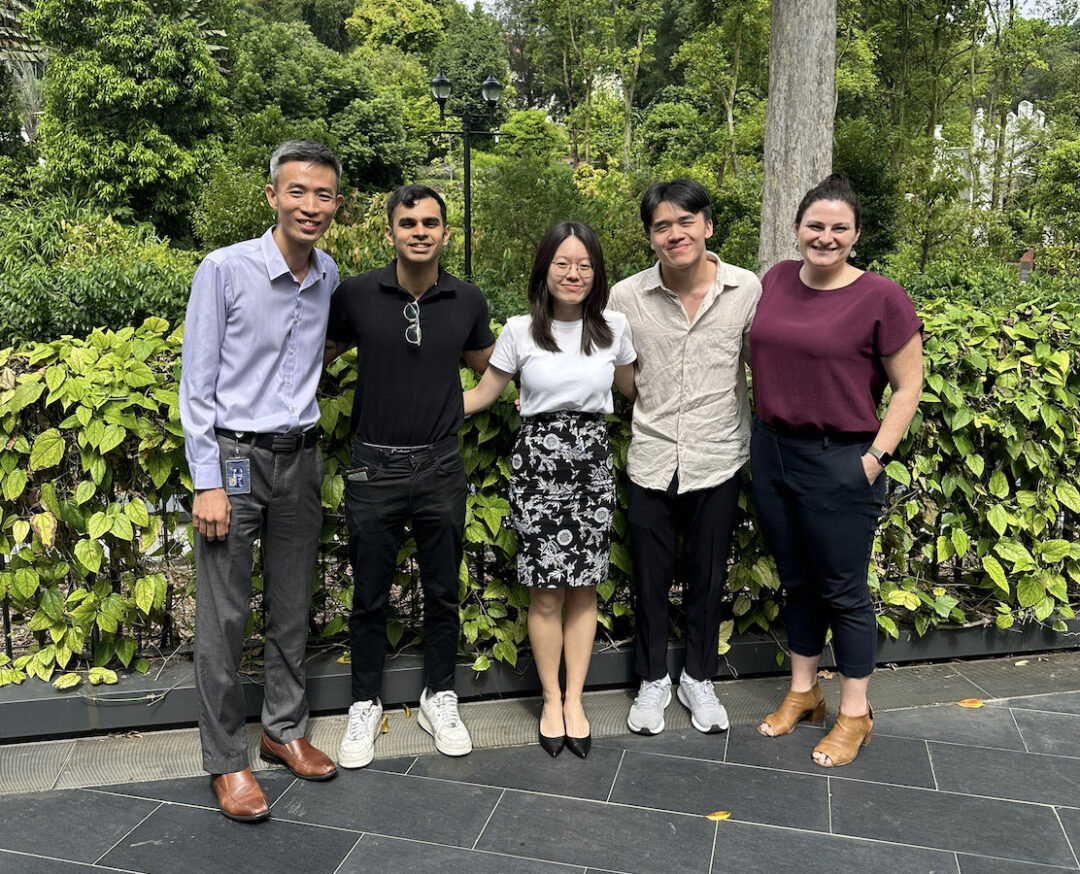
Xinhui’s aspirations are shared by SMU’s leadership. SMU Professor Elvin Lim, dean at the College of Integrative Studies (CIS), says that “The Reach Alliance enables a global network of partner universities to collaborate on research and develop interdisciplinary solutions.” He goes on to say “Through student research and faculty mentorship drawn from the Alliance, Singapore Management University aims to deepen our engagement with the city and to create meaningful impact for communities around the world.”
The SMU team’s chatbot research aims to benefit marginalized communities not only within Singapore but also internationally. Singapore Management University’s second cohort of student researchers Gigi Foo, Carolina Cheng, Alexander Tsai, and Arif Ahmad will build on learnings and insights from last year’s team to realize even greater impact this year.
“I have been greatly inspired by how the first SMU research team have grown and look forward to another transformative journey ahead”, says Dr. Andrew Koh, Reach faculty mentor and senior lecturer of Computer Science at Singapore Management University.

